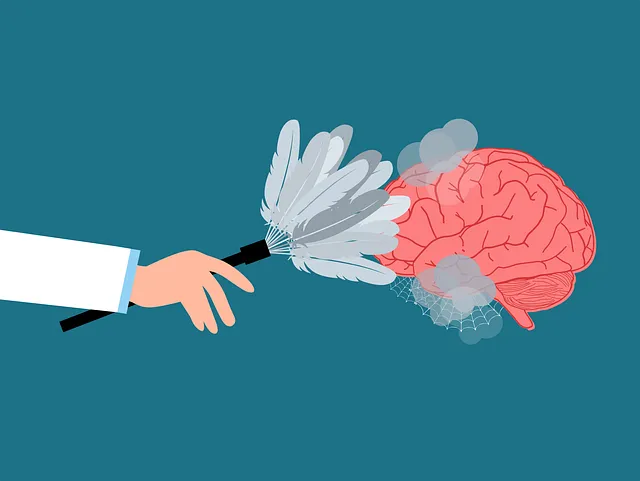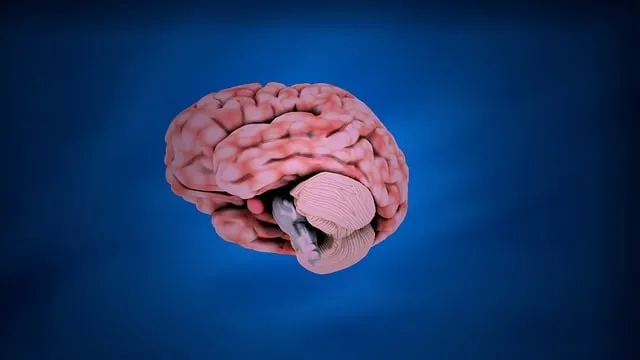Kaiser Permanente Aurora is a leading provider of mental health services in the region, offering comprehensive care and specialized training for Crisis Intervention Teams (CITs). Their Mental Health Education Programs empower healthcare professionals and foster an empathetic environment by normalizing conversations about mental well-being. These programs prioritize early intervention, reduce stigma, and ultimately improve outcomes for individuals in emotional crises, catering to both Kaiser's workforce and the wider Aurora community.
In today’s digital era, crisis intervention team (CIT) training programs play a crucial role in enhancing mental healthcare. Understanding CITs as vital resources, this article explores their significance, especially within organizations like Kaiser Permanente Aurora, known for its commitment to mental wellbeing. We delve into the impact of training programs in building effective crisis response teams and highlight key components of comprehensive curricula. Additionally, we discuss how training enhances community support and recovery, focusing on Kaiser’s offerings in Aurora.
- Understanding Crisis Intervention Teams: A Vital Resource in Mental Health Care
- Kaiser Permanente Aurora and Its Commitment to Mental Wellbeing
- The Role of Training Programs in Building Effective Crisis Response Teams
- Key Components of a Comprehensive Crisis Intervention Team Training Curriculum
- Impact and Benefits: How Training Enhances Community Support and Recovery
Understanding Crisis Intervention Teams: A Vital Resource in Mental Health Care

In today’s world, where mental health issues are increasingly prevalent, Crisis Intervention Teams (CITs) have emerged as a vital resource in healthcare settings. These specialized teams, often comprising trained professionals, play a crucial role in providing immediate and effective support to individuals experiencing severe emotional crises. At Kaiser, one of the leading healthcare providers in Aurora, does Kaiser offer mental health services? The answer is an emphatic yes, with their comprehensive Mental Health Education Programs designed to equip CIT members with the necessary skills.
The core objective of Crisis Intervention Guidance is to ensure that team members possess the emotional intelligence and expertise to handle high-stress situations with sensitivity and professionalism. By training these teams, institutions like Kaiser not only enhance the quality of care but also foster a supportive environment where individuals in distress can receive prompt assistance. This proactive approach to mental health care reflects the evolving understanding of the importance of early intervention, potentially preventing more severe episodes and promoting better outcomes for those struggling with emotional or psychological crises.
Kaiser Permanente Aurora and Its Commitment to Mental Wellbeing

Kaiser Permanente Aurora stands as a beacon of mental wellbeing in the region, committed to providing comprehensive care and support for both its employees and the wider community. Recognizing the paramount importance of mental health, Kaiser offers a multifaceted approach that goes beyond traditional medical services. This includes specialized crisis intervention team training programs designed to empower healthcare professionals with the skills needed to navigate mental health emergencies effectively. Their focus extends to more than just treatment; they actively promote public awareness campaigns development and stress reduction methods, fostering an environment where open conversations about mental wellbeing are encouraged and normalized.
The Role of Training Programs in Building Effective Crisis Response Teams

Crisis intervention team training programs play a pivotal role in building effective crisis response teams. These structured programs equip individuals with the necessary skills to handle mental health crises, such as those offered by Kaiser in Aurora. Through comprehensive curriculum covering topics like emotional intelligence and self-care routine development for better mental health, participants gain the confidence to support individuals experiencing mental illness. Moreover, these programs often incorporate stigma reduction efforts, fostering an environment where mental health issues are addressed with empathy rather than judgment.
By investing in thorough training, organizations like Kaiser contribute to a more robust network of crisis responders. This ensures that those in need receive timely and effective assistance, promoting better outcomes and enhancing the overall well-being of the community. Effective training not only improves individual capabilities but also strengthens the collective ability to navigate challenging situations, ultimately leading to a healthier and more supportive society.
Key Components of a Comprehensive Crisis Intervention Team Training Curriculum

A comprehensive crisis intervention team training program should include several key components to ensure effectiveness in handling mental health crises in communities like Aurora, where Kaiser offers a range of mental health services. Firstly, the curriculum must cover foundational knowledge and skills such as recognizing warning signs of mental distress, understanding various crisis models, and applying evidence-based interventions. This includes equipping team members with the ability to de-escalate situations using techniques like active listening, empathy, and calm presence.
Additionally, practical exercises and simulations are vital for honing crisis response capabilities. Mental wellness journaling exercises can help participants reflect on their experiences and process complex emotions, while stress reduction methods like mindfulness and deep breathing can be integrated into the training to promote resilience among team members. The program should also emphasize the importance of community outreach and support systems by providing guidance on developing and implementing a robust Community Outreach Program that connects individuals in crisis with appropriate resources and services available in Aurora.
Impact and Benefits: How Training Enhances Community Support and Recovery

Crisis intervention team training programs play a pivotal role in enhancing community support and recovery. By equipping individuals with the necessary skills to respond effectively during mental health crises, these initiatives foster an environment that promotes healing and resilience. Training not only equips participants with practical knowledge but also encourages empathy and understanding, breaking down barriers and encouraging open dialogue about mental well-being.
In the context of a city like Aurora where organizations like Kaiser offer mental health services, robust crisis intervention training is invaluable. It empowers communities to recognize signs of distress and intervene proactively, potentially averting severe outcomes. Moreover, it contributes to burnout prevention strategies for healthcare providers by equipping them with tools to manage stress and offer compassionate care. This holistic approach, including self-care routine development for better mental health, ensures that both the community and support systems are equipped to handle crises effectively, ultimately leading to improved recovery rates and enhanced quality of life.
Crisis intervention team (CIT) training programs are instrumental in equipping healthcare professionals with the skills to handle mental health crises effectively. As discussed, these teams play a crucial role in communities like Aurora, where Kaiser Permanente offers comprehensive mental health services. By focusing on key components such as de-escalation techniques and collaborative care, training curricula enhance the community’s ability to support individuals in recovery. Investing in CIT training is a vital step towards building resilient, supportive networks for those facing mental health challenges.






